Endocrinology Fellowship Archive
The Integrated Fellowship Training Program in Diabetes, Endocrinology and Metabolism (DEM) at the University of California, San Francisco is designed for physicians who have completed internship and residency training in Internal Medicine. Our program trains physicians for both a career in academic medicine as clinician scientists and educators, and as leading clinical endocrinologists.
Our training program is fully ACGME-accredited. Both the Academic/Research Tracks and Clinical Endocrinology Track outlined below include robust clinical training experiences. All trainees qualify for ABIM specialty board certification in Endocrinology, Diabetes and Metabolism. Trainees go on to careers in academic medicine, endocrine clinical practice, and the pharmaceutical/biotechnology industry, with a track record of appointments in highly competitive positions.
Research
Diversity
Family Friendly
Living in San Francisco
Clinical Training (all Tracks)
The first year of the fellowship focuses exclusively on clinical training in Diabetes, Endocrinology and Metabolism. There are separate divisions of Diabetes, Endocrinology and Metabolism at the Zuckerberg San Francisco General Hospital, the San Francisco Department of Veterans Affairs Medical Center, and the UCSF Medical Center. The clinical year consists of four three-month rotations, with 6 months at the UCSF Parnassus site and 3 months each at the SFVAMC and ZSFG. These rotations involve extensive inpatient and outpatient exposure to the full spectrum of problems in endocrinology and metabolism, as well as robust educational experiences.
Academic/Research Training Track
UCSF has a strong tradition of providing robust research training for applicants wanting to pursue a career in academic medicine. Graduates successfully compete for national career development grants and transition into academic positions around the country.
The Academic/Research Training Track is composed of one exclusively clinical year (see Clinical Experience above) and two additional years focused on research. Fellows in the Academic/Research Track choose one of two pathways below, and spend their second and third years of the fellowship focused on training in DEM research. Plans for research training and selection of research mentors are discussed with the Program Director, Career Mentors and endocrine faculty during the first year of the fellowship. The UCSF DEM faculty includes approximately 75 distinguished researchers, clinicians, and educators at UCSF drawn from multiple academic departments and representing every discipline within endocrinology and metabolism and their related basic and clinical sciences. Examples of the breadth of research opportunities available to trainees are illustrated by the attached research summaries.
Training in the Academic/Research Track is primarily funded by an NIH Training Grant from the National Institute of Diabetes, Digestive and Kidney Diseases and includes the following pathways.
Academic/Research Track: Basic and Translational Scientist Pathway
Recognizing that our pool of fellows consists of individuals with disparate backgrounds in science and research, there are several options for training in basic and translational research.
One option consists of practical training in the laboratory of an established bench investigator supplemented by formal courses in cell biology, molecular biology, genetics, immunology, biochemistry, or other topics offered through the UCSF graduate programs [e.g., the Biomedical Sciences (BMS) Program or the Program in Biological Sciences (PIBS)].
A second option, often pursued by endocrine fellows with previous research experience, is to have their research training experience take place in the laboratory of their chosen mentor, supplemented with ongoing seminars and conferences in that laboratory or department.
A third option is to apply to the UCSF Molecular Medicine Training Program (MMTP) for internship and residency with subsequent tracking into the DEM Fellowship Training Program. This competitive institution-wide program provides advanced training in the experimental study of the molecular and cellular basis of disease. This is done through individual laboratory research, lectures, seminars and journal clubs. In addition, through an individual advisory/mentoring system, the program provides guidance and advice about the practicalities of pursuing a career at the interface of science and medicine. Many DEM faculty mentors are also MMTP faculty.
As a fourth option, trainees may choose to pursue a PhD degree in the BMS Program at UCSF, an elite graduate program in integrative biology with an emphasis on the study of human disease. One can apply to this program before or after arriving on campus.
Academic/Research Track: Clinical Research Pathway
Like the Basic Scientist Pathway, this program recognizes the disparate training needs of our fellows and consists of a combination of mentored research experience and formal training.
The clinical research training experience is planned by the fellow in conjunction with his/her chosen research mentor, Career Mentor and Program Director. Available research projects span the full range of clinical investigation, from clinical trials performed in the clinical research facilities of the UCSF Clinical and Translational Science Institute (CTSI) to studies in epidemiology and biostatistics using massive international data bases, and cover topics such as hyperlipidemia, cardiovascular endocrinology, osteoporosis, growth hormone therapy, thyroid cancer, pituitary and adrenal disorders, wasting syndromes, obesity, and type 1 and 2 diabetes.
Fellows in the Clinical Investigator Pathway can supplement their research training with coursework through the UCSF Training in Clinical Research (TICR) Program, which provides a spectrum of training covering basic clinical study design, biostatistics, epidemiology and medical ethics. These courses are available individually or as part of larger programs awarding a certificate or Master’s Degree in clinical research. The program provides mentorship to trainees to decide what types of courses would have the highest impact for fellows in the Clinical Investigator pathway.
Clinical Endocrinology Track
UCSF recognizes the major roles that clinical endocrinologists play in our community and in health care. For many years, we have supported fellows interested in pursuing robust clinical endocrinology training towards the goal of a career focused on clinical care. Our graduates have gone on to be major thought leaders in clinical endocrinology, in the United States and abroad.
The Excellence in Clinical Endocrinology Track is composed of one exclusively clinical year (see Clinical Experience above) and a second year focused on building robust clinical, fundamental clinical research, and medical education expertise. Fellows in this track have the option to take the UCSF TICR Designing Clinical Research Course during the first part of their 2ndyear. In addition, they receive clinical research exposure through the San Francisco VA Medical Center, which is the primary site for the 2ndyear experience. Fellows also have the option to pursue medical education-specific training through the UCSF GME office, such as GME Grand Rounds focused on modern medical education techniques; and teach UCSF medical students in endocrinology and metabolism.
Program Leadership
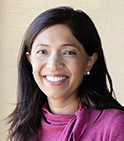 Madhu N. Rao, MD
Madhu N. Rao, MD
Program Director
[email protected]
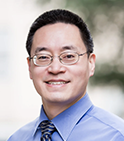 Edward Hsiao, MD, PhD
Edward Hsiao, MD, PhD
Associate Program Director
[email protected]
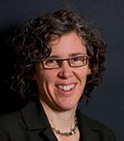 Elizabeth Murphy, MD, PhD
Elizabeth Murphy, MD, PhD
Associate Program Director
[email protected]
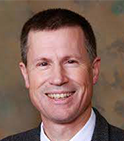 Michael German, MD
Michael German, MD
Associate Program Director
[email protected]
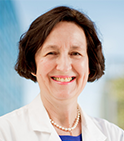 Dolores Shoback, MD
Dolores Shoback, MD
Associate Program Director
[email protected]
Evelina Azarian
Fellowship Coordinator
[email protected]
